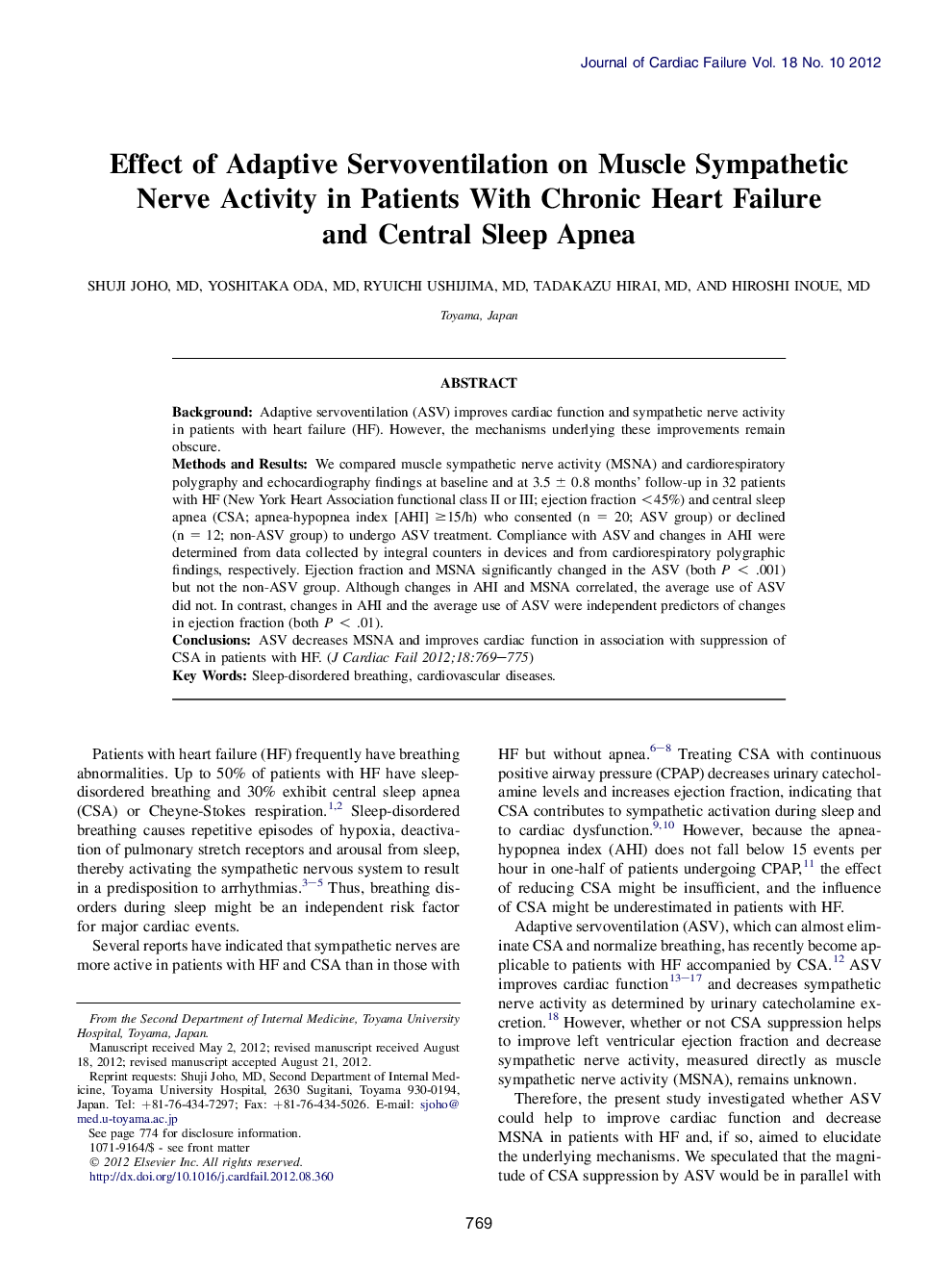| Article ID | Journal | Published Year | Pages | File Type |
|---|---|---|---|---|
| 2959937 | Journal of Cardiac Failure | 2012 | 7 Pages |
BackgroundAdaptive servoventilation (ASV) improves cardiac function and sympathetic nerve activity in patients with heart failure (HF). However, the mechanisms underlying these improvements remain obscure.Methods and ResultsWe compared muscle sympathetic nerve activity (MSNA) and cardiorespiratory polygraphy and echocardiography findings at baseline and at 3.5 ± 0.8 months’ follow-up in 32 patients with HF (New York Heart Association functional class II or III; ejection fraction <45%) and central sleep apnea (CSA; apnea-hypopnea index [AHI] ≥15/h) who consented (n = 20; ASV group) or declined (n = 12; non-ASV group) to undergo ASV treatment. Compliance with ASV and changes in AHI were determined from data collected by integral counters in devices and from cardiorespiratory polygraphic findings, respectively. Ejection fraction and MSNA significantly changed in the ASV (both P < .001) but not the non-ASV group. Although changes in AHI and MSNA correlated, the average use of ASV did not. In contrast, changes in AHI and the average use of ASV were independent predictors of changes in ejection fraction (both P < .01).ConclusionsASV decreases MSNA and improves cardiac function in association with suppression of CSA in patients with HF.
